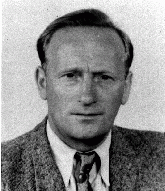You searched for: 区块链源码定制开发【TG���������@EK7676】平台包网搭建区块链源码定制开发【TG���������@EK7676】平台包网搭建39gSaHphgx
<< Previous | Displaying results 41-50 of 619 for "区块链源码定制开发【TG���������@EK7676】平台包网搭建区块链源码定制开发【TG���������@EK7676】平台包网搭建39gSaHphgx" | Next >>
-
Henny Schermann
ID CardHenny's parents met in Germany soon after her father emigrated from the Russian Empire. Henny was the first of the Jewish couple's three children. The family lived in Frankfurt am Main, an important center of commerce, banking, industry and the arts. 1933-39: After the Nazis came to power, they began to persecute Jews, Roma (Gypsies), men accused of homosexuality, people with disabilities, and political opponents. In 1938, as one way of identifying Jews, a Nazi ordinance decreed that "Sara" was to be…
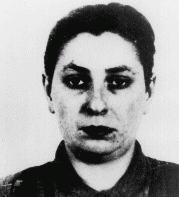
-
Bernhard Liebster
ID CardBernhard, who was from a religious Jewish family in the Polish town of Oswiecim, emigrated as a young man to Frankfurt, Germany. There he married Bertha Oppenheimer from the nearby town of Reichenbach. They settled in Reichenbach where they were one of 13 Jewish families. Bernhard worked as a shoemaker, and the couple raised three children. 1933-39: In a corner of his living room, Bernhard ran a small shop specializing in orthopedic shoes. Antisemitism was growing in Germany, but the townspeople of…
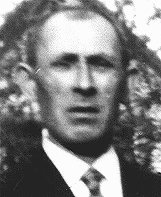
-
Johann Stossier
ID CardJohann was born to Catholic parents in the part of Austria known as Carinthia, where he was raised on the family farm. Johann enjoyed acting and belonged to a theater group in nearby Sankt Martin, which also happened to have a Jehovah's Witness congregation. He became a Jehovah's Witness during the late 1920s, actively preaching in the district around Sankt Martin. 1933-39: Johann continued to do missionary work for the Jehovah's Witnesses even after this was banned by the Austrian government in 1936. The…
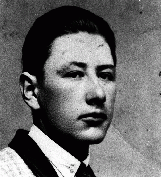
-
Lisa Dawidowicz
ID CardLisa was born to a Jewish family in the small city of Ostrog in southeastern Poland. Her parents operated a grocery out of their residence; the front half of the house was a store and the rear half was their home. Ostrog was an important center of Jewish religious learning in Poland, and by 1933 Jews made up almost two-thirds of the city's total population. 1933-39: Lisa's family was religious and they regularly attended services. Lisa studied at a Polish school until the Soviets arrived in September…
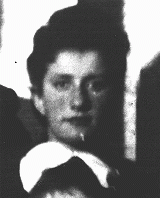
-
Janka Glueck Gruenberger
ID CardJanka was one of seven children raised in a Yiddish-and Hungarian-speaking household by religious Jewish parents in the city of Kosice. In 1918, when she was 20 years old, Kosice changed from Hungarian to Czechoslovak rule. Three years later, Janka married Ludovit Gruenberger, and their three children were born Czech citizens. 1933-39: Janka was an accomplished milliner, and she helped her husband run a tailoring business from their apartment. Like many Jews in Kosice, Janka and Ludovit were upset when…
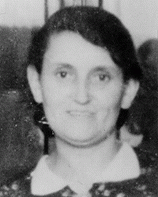
-
Zuzana Gruenberger
ID CardZuzana was the youngest of three children born to Hungarian-speaking Jewish parents in the city of Kosice. She was the baby of the family, and they called her Zuzi. Her father was a tailor whose workshop was in the Gruenbergers' apartment. 1933-39: In November 1938, when Zuzana was 5, Hungarian troops marched into Kosice and made it a part of Hungary. The Hungarians changed the name of the city to Kassa. The Hungarian government was friendly to Nazi Germany and introduced anti-Jewish laws in…
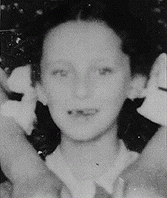
-
Robert Kulka
ID CardRobert was the son of Jewish parents, Leopold and Florentina Kulka, and was raised in the Moravian town of Olomouc. After completing secondary school, he attended a business school until 1909. He began a business in Olomouc and in 1933 he married Elsa Skutezka from the Moravian city of Brno. The couple made their home in Olomouc. 1933-39: The Kulkas' son, Tomas, was born a year and a day after they were married. In 1937 Elsa's father passed away and the Kulkas moved to Brno, where Elsa and her husband…
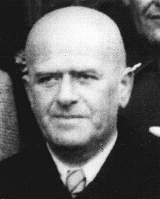
-
Henry Maslowicz
ID CardHenry's Jewish parents lived in a Polish town in which their families had lived for 150 years. The Jewish community enjoyed good relations with their Polish neighbors; the local Polish population refused to cooperate when the government encouraged a boycott of Jewish businesses during a wave of antisemitism that swept Poland in the mid-1930s. 1933-39: In the years before Henry was born, his father owned an iron and coal factory. The Germans occupied Wierzbnik on September 5, 1939. While some Jews fled,…
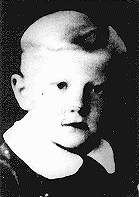
-
Alida Nathans Wijnberg
ID CardAlida was the oldest of eight children. Her parents, religious Jews, owned a textile business in the small town of Vries. As a teenager, Alida helped her family sell textiles to the local farmers, carrying the goods in a suitcase attached to the handlebars of her bicycle. She married Samuel Wijnberg, and the couple had three sons and a daughter. 1933-39: The Wijnbergs owned and lived in a kosher hotel in the town of Zwolle. It was the only kosher hotel in the region, so many Jewish businessmen and cattle…
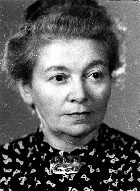
-
Shlomo Reich
ID CardShlomo was one of seven children born in Lodz to the Reich family. The Reichs were a religious Jewish family, and Shlomo's Hasidic father wore earlocks and a traditional fur hat. After public school every day, Shlomo attended the Ostrovtze Yeshiva, a rabbinical academy where he studied Jewish holy texts. Shlomo's father owned a shoelace factory. 1933-39: The Germans invaded Lodz in September 1939 and began to institute anti-Jewish measures. Jews were not allowed to use public transportation, to leave the…
